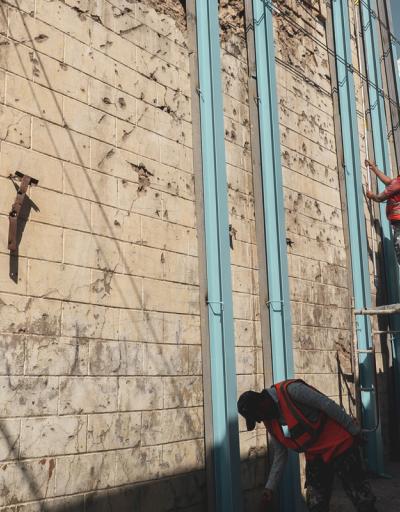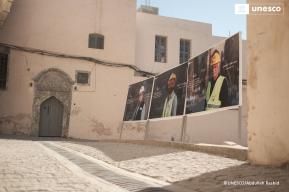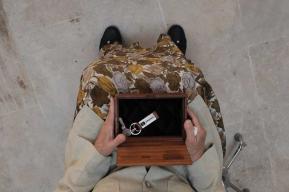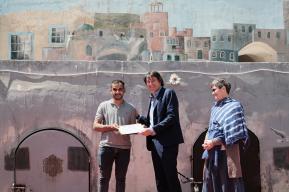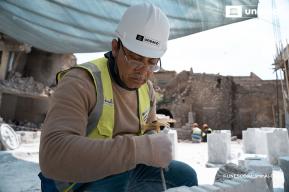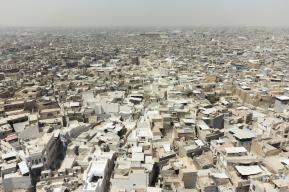In 2018, UNESCO Director-General, Audrey Azoulay, launched the Organization's flagship initiative, ‘Revive the Spirit of Mosul’: UNESCO's response for this city’s recovery by empowering the population as agents of change involved in the process of rebuilding their city through three main axes: heritage, education and cultural life.
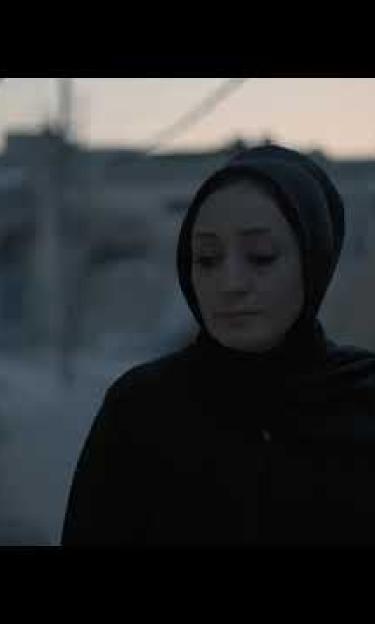
In partnership with the UAE, UNESCO is working on the rehabilitation of Al Nouri Mosque and its famous leaning minaret, Al-Tahera and Al-Saa'a churches. The preparation phase of reconstruction, which included rubble removal, demining, temporary stabilisation as well as detailed design, for Al Hadba Minaret and the two churches is completed. The actual reconstruction works for these sites are planned to start by the first trimester of 2022. As for Al Nouri Mosque, UNESCO launched, in November 2020, an International Design Competition for the selection of the design of Al Nouri Mosque. The winners, an Egyptian team, are currently finalizing the detailed design.
UNESCO has another major heritage venture: ‘Reviving Mosul and Basra Old Cities’. With the support of the European Union, the reconstruction, preservation and restoration of 122 heritage houses in Mosul is underway. 75 houses, for which the construction works started in 2020, are to be handed over to owners in late March 2022.
To date, 360 graduated trainees from the TVET programme have completed their training, with a further 440 to undertake training throughout the duration of the house construction. Job and training opportunities linked to saving the historic urban landscape provide further benefits to Mosul’s citizens. So far, 2,600 jobs have already been created out of a planned 2,800.
Reviving Mosul’s spirit also means ensuring safe learning environments for children. Among several initiatives, ‘Voices of the children of Old Mosul’, funded by Japan, is working to rebuild schools and empower teachers to build peace among their students and wider community. 3,440 extremely vulnerable students and youth, together with 115 teachers in Mosul and other liberated areas, will learn from a tablet/ICT based programme with support from Sweden. Similarly, 10,000 learners will benefit from the UNESCO educational programme for the Prevention of violent extremism through education, funded by Canada.
UNESCO set up a Creative Space, ‘The Station’, in Mosul in June 2021. It serves as a hub for young people working on cultural and creative industries to meet, learn and exchange ideas. Since 2018, UNESCO has supported, through training and equipment, the conservation and safeguarding of a collection of manuscripts salvaged from Mosul. UNESCO's Heritage Emergency Fund financed a project on the advancement of music, ‘Wassla (Connection) to Revive cultural life in the city of Mosul’ (2019–2020). Multiple events resulted from the project, including the launch of a documentary film and music-related activities.


